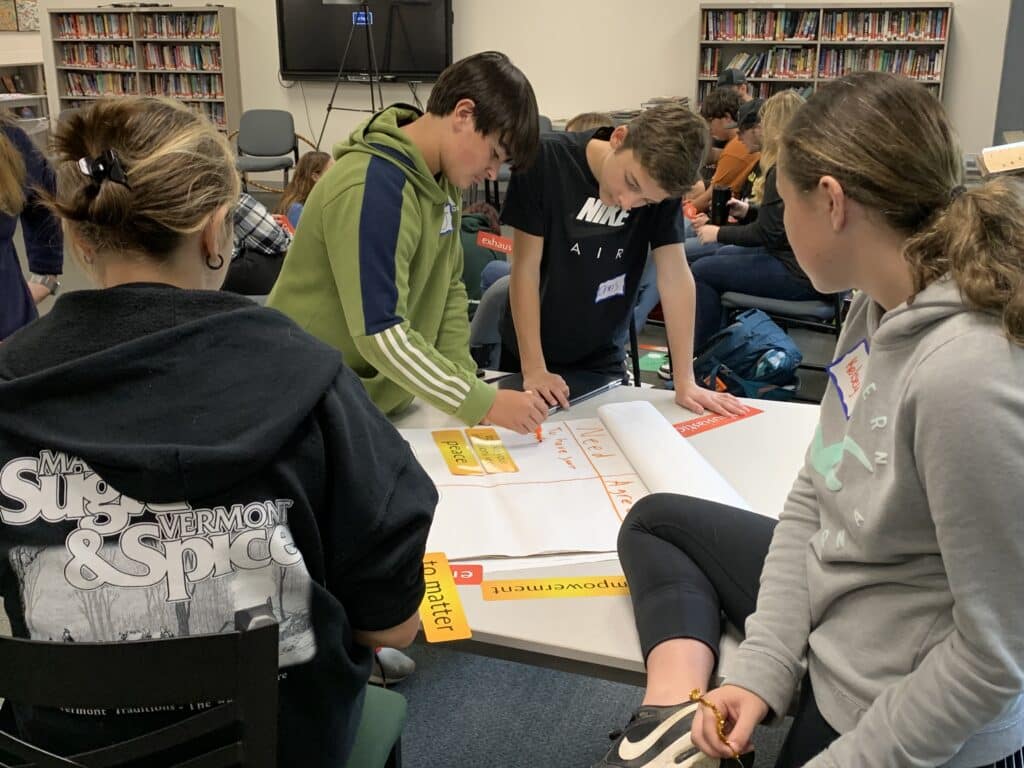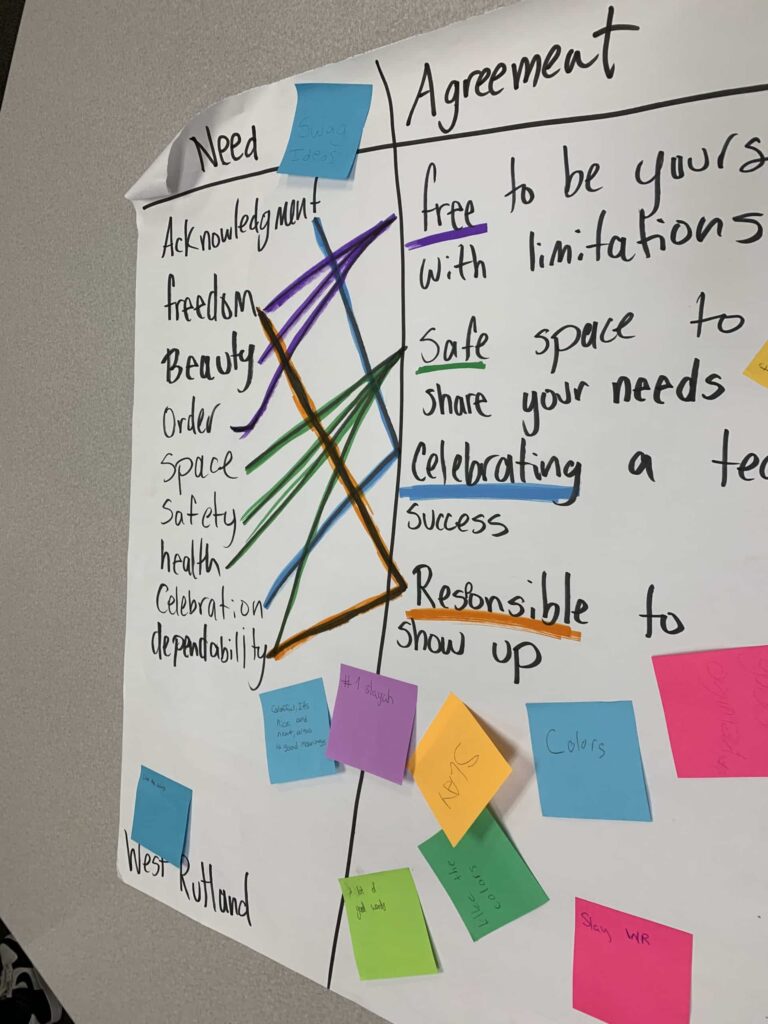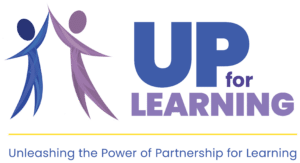
On Tuesday, September 27th, middle and high school youth and adult teams from Proctor HS, Poultney HS, Rutland Town School and West Rutland School came together to kick off another year of transforming their school cultures through restorative practices. Meeting at West Rutland School and facilitated by UP Faculty, Emily Rossier, the youth-adult teams worked as one large team and as smaller school teams to “harness the genius” in the room. They focused on community building, youth-adult partnership, identifying values, crafting team agreements to support their best work, and developing communications plans around their action steps.
This group of four teams, two of which had principals present and participating, began their work last year. One returning 9th grader from Poultney said she continued with the work this year because, “she liked the interaction with all the other schools.” Sharing games such as “This or That,” where everyone chooses their preference between two options such as treehouse or cave, beach or woods, work alone or with others, the group members got to know each other a little better, and learned what they have in common. The high trust and comfort level was apparent in the high excitement around dance breaks between work sessions.
The greater level of comfort with each other also allowed the teams to explore some harder questions:
- Youth asked adults, why do you ask if you won’t take my opinion?
- Adults asked, what does being heard look like to students? One teacher said, “It might not be turning the building over to students, but it can make a difference to your experience.”
- Both reflected on the decision-making process, how information that influences decisions flows, how final decisions are made and enacted, and how they are communicated. Finally, using UP’s seed to tree model, they talked about how they could work individually and collectively to improve their community.
Time was allocated to identifying the group agreements for meetings. Everyone was asked to find a word that described how it felt to be supported and successful and a word to describe the conditions in which that happened. These word pairs served as a basis for the group agreements. From there, teams discussed whose voice was missing from their team and how to recruit them to join, and began to talk about types of data to collect and how to communicate their plans and commitment. Each team identified a team meeting time and action steps to take before coming together again at the next retreat on November 15th.
The youth-adult teams overwhelmingly ended their first retreat with excitement about the day and the upcoming work. In the closing circle, participants identified the dance party and the “energy in the room” as the highlights, which underlines the power of partnerships built on trust, shared experience, and joy.


